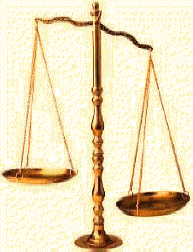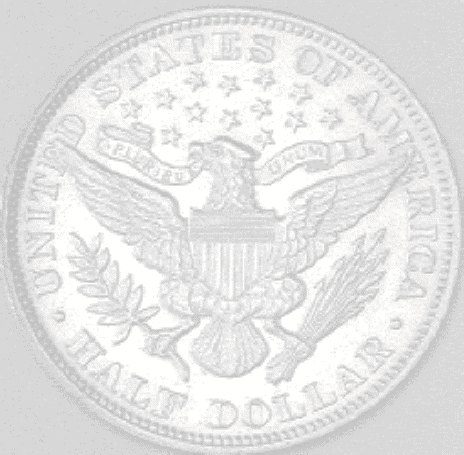
|
|
||
|
|
|
|
|
|
||

-49-
FOR BETTER OR WORSE:
A "Pis Aller"
James Madison who in 1791 had
opposed the First Bank on the grounds it lacked constitutionality, had
also changed his mind on the grounds of "economic expediency" (Johnson,
8). He viewed the Bank of the United States as what the French call a
"pis aller" --a lesser of two evils. On January 30, 1815, he vetoed the
Bank Bill sent him by Congress (White, 276); yet, he signed it into Law
the first year of his presidency (Johnson, 9).
The Second Bank of the United States received a 20-year
charter beginning in 1816. Its name was a misnomer because like the
First Bank it too was privately owned and was granted the
unconstitutional power to print "money" (Griffin, 173). When the charter
expired in 1836, it was not renewed.
The Second Bank and The Concentration of Power
It was during the Presidential
Campaign of 1828 that General Andrew Jackson spoke out strongly against
a central bank. He told the bankers, "You are a den of vipers. I intend
to rout you out and by the Eternal God I will rout you out." He said "If
the people only understood the rank injustice of our Money and Banking
system there would be a revolution before morning” (Griffin, 173-74).
The renewal of the charter was the major campaign
issue in the election of 1832. Andrew Jackson vetoed the bill denouncing
it as unconstitutional, and warned of "such a concentration of power
in the hands of a few men irresponsible to the people”
(Johnson, 10).
Jacksonian Economics
Andrew Jackson elected
President of the United States in 1828 and was re-elected in 1832. On
July 10, 1832, he presented to the Senate his veto message on
re-chartering the ”Bank of the United States." In it, he warned of the
danger of placing the banking and other resources into the hands of a
private monopoly. He said,
. . . Having considered (the Bill) with solemn regard to the principles of the Constitution ... (I) come to the conclusion that it ought not to become a law . . . Some of the powers and privileges possessed by the existing bank are unauthorized by the Constitution, subversive to the rights of the States, and dangerous to the liberties of the people. It enjoys an exclusive privilege of banking under the authority of the General (Federal) Government, monopoly of the foreign and domestic exchange.
. . . (The Act) seems to be predicated on the erroneous idea that the present stockholders have a prescriptive right to not only the favor but to the bounty of government . . . For their benefit does this act exclude the whole American people from competition in the purchase of this monopoly.
(If the Bank were re-chartered in perpetuity) the present stockholders and those inheriting their rights as successors (would) be established (as) a privileged order, clothed both with great political Power and enjoying immense pecuniary advantages from their connection with the government . . .
Should its influence become concentrated, as it may, under the operation of such an Act as this, in the hands of a self-elected directory whose in interests are identified with those of the foreign stockholders, will there not be cause to tremble . . .for the independence of our country in war? Their power would be great whenever they might choose to exert it . . .
Should the stock of the bank principally pass into the hands of the subjects of a foreign country, what would be our condition? All its operation . . . would be in aid of the hostile fleet and armies without.
Controlling our currency, receiving our public monies, and holding thousands of our citizens in dependence, it would be more formidable and dangerous than the naval and military power of the enemy . . .
It is maintained by some, that the bank is a means of exercising the Constitutional power "to coin money and regulate the value thereof." Congress has established a mint to coin money and passed laws to regulate the value thereof. The money so coined with its value so regulated, and such foreign coins as the Congress may adopt, are the only currency known to the Constitution.
But if they (Congress) have the power to regulate the currency: it was conferred to be exercised by themselves, and not to be transferred to a (private) corporation.
If the bank be established for that purpose with a charter unalterable without its consent, Congress have parted with its power for a term of years, during which the Constitution is a dead letter.
It is neither necessary nor proper to transfer its legislative power to such a bank, and is therefore unconstitutional.
It is to be regretted that the rich and powerful too often bend the acts of Government to their selfish purposes . . . .In the full enjoyments of the gifts of Heaven and fruits of superior industry, economy and virtue, every man is equally entitled to protection by law; but when the laws undertake to add to those natural and just advantages, artificial distinctions, to grant titles, gratitudes, or exclusive privileges, to make the rich richer and the Potent more Powerful, the humble members of society --the farmers, mechanics and laborers --who have neither the time nor the means of securing favors to themselves, have a right to complain of the injustice of their government.
There are no necessary evils in government. Its evils exist only in its abuses. If it could confine itself to equal protection, and, as Heaven does its rain, shower its favors alike on the high and the low, the rich and the poor, it would be an unqualified blessing. In the (Bank) Act before me there seems to be a wide and unnecessary departure from these principles.
Nor is our Government to be maintained or our Union preserved by invasions of the rights and powers of the several states. In thus attempting to make our . . . Government strong we make it weak. Its true strength consists in leaving individuals and states as much as possible to themselves -- in making itself felt, not in its Power but in its beneficence; not in its control but in its protection, not in binding the states more closely to the center, but in leaving each to move unobstructed in its proper orbit.
Experience should teach us wisdom. Most of the difficulties our Government now encounters, and most of the dangers which impend over our Union have sprung from an abandonment of the legitimate objects of Government by our National Legislature and the adoption of such principles as are embodied in this (Bank) Act.
Many of our rich men have not been content with equal protection and equal benefits, but have besought us to make them richer by acts of Congress . . . .It is time to pause in our career to review our principles, and, if possible, to revive that devoted patriotism . . .which distinguished the sages of the revolution and the fathers of the Union.
If we cannot at once, in justice to interests invested under improvident legislation, make our Government what it ought to be, we can, at least, take a stand against all new grants of monopolies and exclusive privileges (such as re-chartering a private bank of issue) against any prostitution of our government to the advancement of the few at the expense of the many, and in favor of compromises and gradual reform in our code of laws and system of political economy.
I have now done my duty to my country (in vetoing this measure . . .) (Griffin, 174-176).
